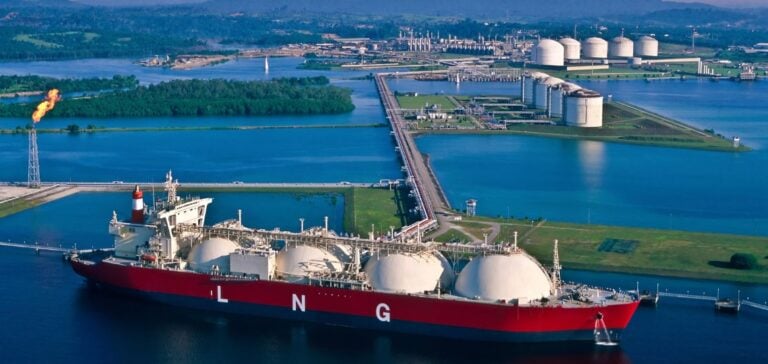Liquefied natural gas (LNG) prices in the Eastern Mediterranean are at two-month highs, surpassing those in the Western Mediterranean. This rise is due to heat waves, which are increasing demand and prompting buyers to bid higher.
On July 25, Platts, a division of S&P Global Commodity Insights, valued Eastern and Western Mediterranean LNG markers for September at USD 10.429/MMBtu and USD 10.294/MMBtu respectively.
This spread of 13.5 cents/MMBtu between the two basins is the widest observed since June 7.
Both regions show premiums to the Dutch gas hub TTF in order to attract cargoes away from North-West Europe.
The Western Mediterranean marker is valued at parity with NWE on July 25, up from a discount of 3 cents/MMBtu the previous day, while the Eastern Mediterranean shows a premium of 13.5 cents/MMBtu above NWE.
Increasing imports into the Mediterranean
LNG imports in the Mediterranean region total 2.28 MMt for July to date, up 13% on the same period last year.
Spain recorded the biggest increase, with imports up 54% year-on-year, reaching 1.65 MMt in July, the highest level in Europe.
Imports into the Eastern Mediterranean rose by 31% year-on-year over the period July 1-26, with Turkey doubling its imports to 0.62 MMt from 0.27 MMt.
Persistent heat waves in Spain, Portugal and southern France, as well as net withdrawals in Portugal, are pushing buyers to bid higher.
Gas stocks in Spain and France are at 75.68% and 97.8% of capacity respectively, according to the latest data from the Aggregated Gas Storage Inventory.
Widening LNG price differentials
Heat waves in the western Mediterranean are also leading to a widening of price differentials between LNG and gas, reaching the widest levels in Europe.
The Western Mediterranean continues to trade at premiums to the PVB domestic gas hub in Spain.
By contrast, Northwest Europe remains at a discount to TTF, and the Eastern Mediterranean trades at a discount to Italy’s PSV.
Higher prices and lower regasification costs are enabling Spain and France to attract more seaborne cargoes.
One trader points out that Northwest Europe is not ready to compete for cargoes with Asia, particularly India and Egypt.
Competition with Asia
Favorable arbitrage economies could also lead to stronger re-exports from the region to Asia.
The need to replenish domestic demand and favorable re-export volumes could together put pressure on prices.
Although the Eastern Mediterranean continues to trade at premiums to TTF, LNG demand in the region remains weak due to access to cheap pipeline volumes.
The Greek market, in particular, is experiencing low liquidity, with volumes coming mainly from Russian gas and the TurkStream pipeline.
The outlook for the Mediterranean LNG market shows sustained demand, mainly driven by weather conditions and supply dynamics, but competition with Asian markets remains a constant challenge to attract cargoes.






















